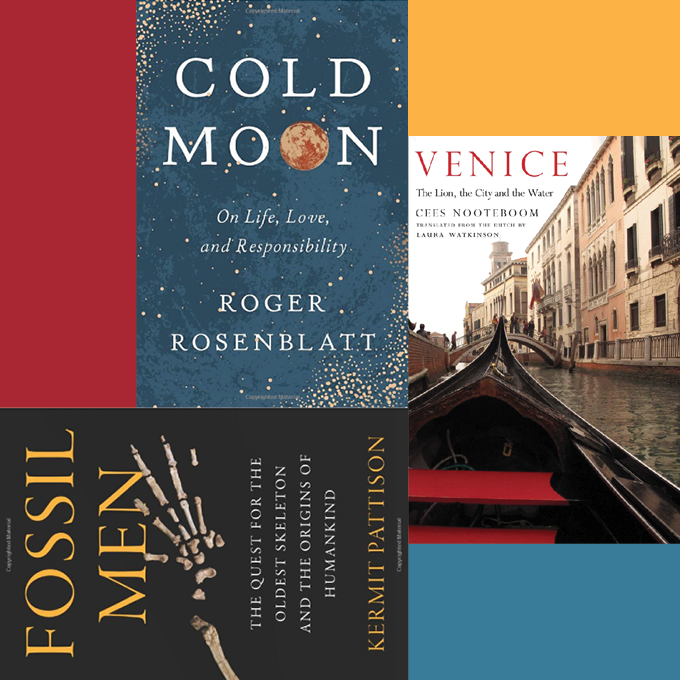Let your mind roam free, and for most in these pandemic days, it will not go very far before the Internet beckons. Luckily for us, the mind of the wonderful essayist Roger Rosenblatt does roam widely and endlessly, much like the waves of the ocean from which he draws wisdom and solace. Now in his eighth decade and inspired by the cold moon, the final one before the winter solstice, Rosenblatt places bits of his life into a mosaic of daily observation and deep reading that is never less than captivating and, ultimately, is lifesaving. Love is our legacy, Rosenblatt believes, and no one could possibly make the case with more heart and wit than he does.
There are surely more books about Venice than there are gondolas, but for addicts of the city, this one captures its mystery in a most alluring way. Cees Nooteboom, a Dutch novelist and poet, has visited the city many times, and his beautifully produced book is as much memoir as travelogue, the story of a visitor from Amsterdam attracted to another city on water that also once ruled an empire but is also now overrun by tourists. Venice is far more capricious, in its fog-shrouded beauty, its corruption, and its decay, yet it retains a dreamy vitality, becoming a part of Nooteboom’s life “in a way that I will never be a part of hers, I will drift through her history like a speck of dust, she will eat me up just as she has always devoured all her lovers and admirers.” It is no wonder that the great explorer Marco Polo chose to be buried in Venice. But his grave is uncertain, a warning to even the most intrepid who attempt to leave their mark there.

